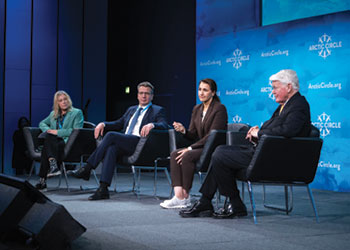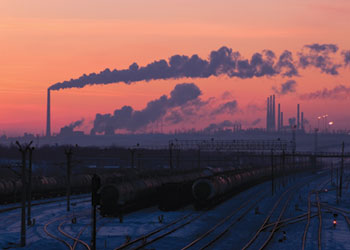
 The youth in Mena are very concerned with climate change
The youth in Mena are very concerned with climate change
A majority of the youth (66 per cent) in the Mena region have said they are ‘very concerned’ about the impact of climate change on their daily lives, and have called on their goverments to do more to tackle climate change.
A recent survey found 66 per cent of Arab youth expressed such sentiments.
The findings were from the 15th annual ASDA’A BCW Arab Youth Survey done by communications consultancy ASDA’A BCW.
Around 60 per cent of the Arab world’s population, some 200 million young men and women, are below the age of 30.
Underpinning the immediacy of climate change in the region, 71 per cent of all respondents said global warming is already impacting their life. This rises to 76 per cent in the North Africa, 74 per cent in the GCC, and 63 per cent in the Levantine countries.
A majority (87 per cent) of Arab youth believe their governments are taking positive action against climate change. However, 56 per cent said governments should set transparent, accountable targets for achieving net-zero emissions.
Some 42 per cent of youth said Arab countries should be doing more than other nations to tackle climate change.
Expressing their displeasure with companies that are not climate conscious, some 58 per cent of Mena youth said they would boycott brands that damage the environment.
Sentiments ran the highest in the Gulf Cooperation Council (GCC), where 65 per cent of the youth surveyed said they would not buy from climate damaging companies.
To date, a handful of countries in Mena have set net-zero targets, including all of the six GCC states and Iraq.
The youth were split when it came to addressing global warming with 49 per cent calling for a lifestyle change while 47 per cent believe technological advancements is the solution.
A majority of youth in the Levant (51 per cent) and in the GCC (51 per cent) voted for technology as the solution to the climate change challenge.
Most GCC youth (80 per cent), however, say their everyday behaviour has an impact on climate change, compared to only 60 per cent in the Levant and 58 per cent in North Africa.
Sunil John, President, MENA, BCW and Founder of ASDA’A BCW, says: "The Middle East is home to some of the world’s largest energy producers and proven oil and gas reserves. This has positioned the Arab world at the heart of the global climate change dialogue. With Egypt hosting COP27 UN Climate Change Conference in 2022 and the UAE preparing to welcome the world for COP28 this year, the region is once again in the global spotlight.
"However, it is less reported that the MENA region also bears the severe brunt of climate change, with heatwaves and flash floods not only affecting livelihoods but also threatening social security and driving people to migrate to newer lands."
The Mena region is one of the world’s most challenging climate change hotspots. According to reports, the region is warming twice as faster than the rest of the world, and temperatures are set to increase by, at least, 4 deg C by 2050, if greenhouse gas emissions increase at the current rate. Consequently, heatwaves are projected to be tenfold more frequent.
Since 1980, the region has witnessed thrice the number of natural disasters causing an average loss of $1 billion per year, the most recent being the devastating flash floods in Libya, which the UN described as one that could have been avoided.
The region is also one of the world’s most water-stressed, with water scarcity affecting food production, accelerating desertification and forcing population movements.
MENA is also one of the most vulnerable to rising sea levels, which is expected to rise to 30 to 122 cm by the end of the century.











































































